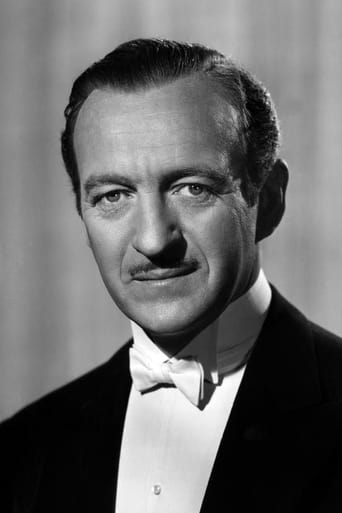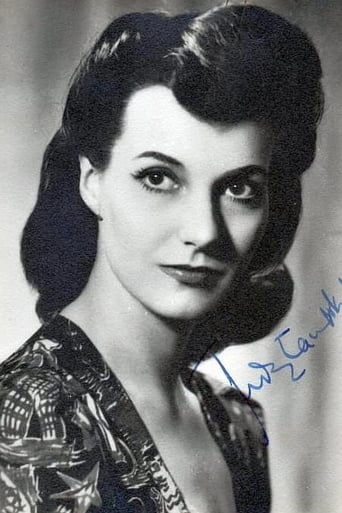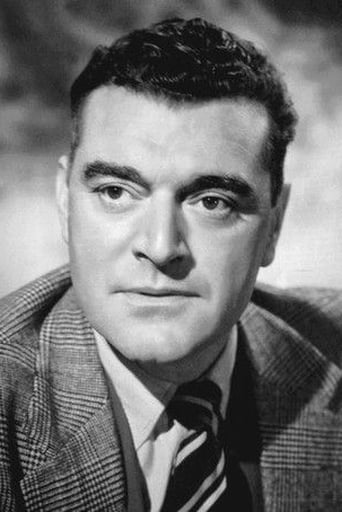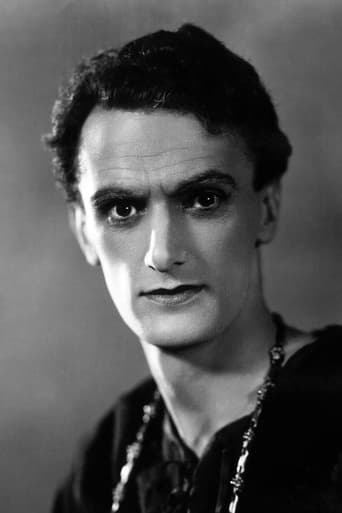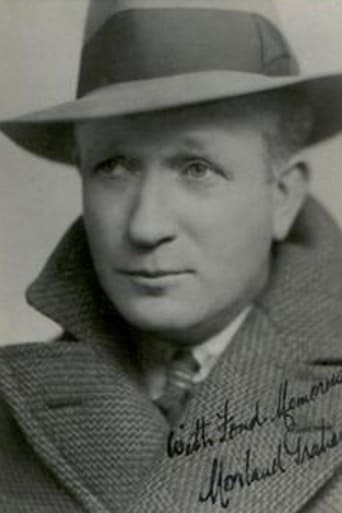bkoganbing
And with the lyric of that ballad, Scotland's glorious Stuart family passed into legend. And like the line of another film, the Scots believe when the legend becomes fact, print the legend.The rising of 1745 was Scotland's last attempt to restore her independent status as a separate kingdom. Prince Charles Stuart, heir to the throne from the Stuart line is sent by his father to take advantage of Great Britain's military commitment in the War of Austrian Succession. Though the King of France, promised than welshed on a commitment for an army, the Prince goes ahead. He meets with initial success, but then overreaches and his army is cut to pieces at the Battle of Culloden. The second half of the movie concerns Charles's escape from Scotland back to Europe.My own opinion on this is that Charles had he stopped at the Scottish border and consolidated his position he might very well have become King of Scotland. Of course later on he would have had real problems with the Scotch Presbyterian Church because he was a Catholic. Playing Bonnie Prince Charlie is David Niven who is his usual charming best. Problem is he's not given much to work with in the way of a script The Prince is noble, dashing, and very bland. There's no real clue to the nature of his character here.The real Prince Charles should never have been played by Niven. For authenticity he should have been played by a French actor because Prince Charles spent his youth in France and was far more fluent in that language than he was in English. Someone like Jean Marais would have been closer to the truth.The rest of the cast is fine, but like Niven most are not given anything in the way of character development. The best acting in the film is from Margaret Leighton. As Flora MacDonald, the woman who hides Charles and leads him to the safety of a ship for Europe, she is both patriotic and touching. Maybe the legend of Bonnie Prince Charlie is better for Scottish hearts after all. He ne'er did come back again. But some day, someone will make a better film of his life.
theowinthrop
The Stuart Family (unlike most of their Tudor cousins) were ill-starred. From the 15th Century onward, while they ruled Scotland, the royal family went through five King named James, none of whom died happily and most of whom died bloodily. James V died of a broken heart, after being beaten by his uncle, Henry VIII, in battle. His daughter Mary, Queen of Scots, managed to lose two thrones (she was briefly Queen of France as well as Scotland), and finally lost her life trying to kill her cousin and "protector" Elizabeth I of England. But her son James VI of Scotland had the best claim to the English throne after Elizabeth (his father was Henry, Lord Darnley, also descended from the Tudor family). So in 1603 he ascended the English throne. He would rule both England and Scotland until he died in 1625, having possibly the most corrupt court in English history. His son Charles I had his likeable aspects (he had a discerning eye for paintings, and built up a large collection), but he was untrustworthy in dealing with Parliament. He ended up facing a series of civil wars, that only ended with his death on the scaffold in 1649. After the Cromwell interlude, Charles I's son, Charles II, succeeded to the throne in 1660. Charles II was corrupt too, but unlike his father he was smart and left one of the most liked public images of any monarch in English history. He died in full power in 1685. His idiot brother James II ruled only three years, and was overthrown. James cousin William of Orange married James daughter Mary, and they ruled from 1688 - 1694. Mary died that year, and William continued ruling until his death in 1702. Mary's sister Anne ruled from 1702 to her death in 1714. Officially that ended the Stuart Dynasty, for William and Mary had no children, and Anne's only child to live to the age of 11, William Duke of Gloucester, died in 1701 before his mother became Queen. Now the Hanovarians came to the throne. They were Protestant, and this garnished them much support overcoming their being autocratic petty German tyrants (from the electorate of Hanover) as well as the mysterious disappearance of Phillip, Count Koeningsmarck (who may have had an affair with Prince George's wife Sophia Dorothea of Celle (see SARABAND FOR DEAD LOVERS).Unfortunately, the Stuarts were not quite dead with Queen Anne in 1714. Besides the descent of the Hanovarians from James I's youngest child, his daughter Elizabeth, the last Catholic Stuart monarch, James II, had a son called James III by his supporters in Scotland and England, and known to his opponents as "the Old Pretender". James was one of those nice men who history mananged to mangle - he was to see several attempts to reclaim his throne (in 1717, 1719, 1721, and 1745) fail completely. Bad weather, bad leadership, feckless French aid, and bad luck denied him any real opportunity to get rid of the Germans (who were not too popular under the bullying George I and his son George II). Then, in 1744, it looked like a final fling of the dice might just bring about the first successful invasion of England since William the Conqueror came in 1066.James had two sons, Charles and Henry. Henry would become a priest, eventually rising to being Henry, Cardinal Stuart (and last Stuart pretender monarch - he died in 1807). His older brother Charles became a hero of romance, as Bonnie Prince Charlie. Charlie landed in Scotland, and in two battles defeated British troops sent to stop him. He then led his army through Scotland into England and reached Derby - he was less than 100 miles from London. Historians still debate his decision to retreat to Scotland. Most feel that if he had pushed forward, the public would have supported him and the Hanovarian line would have been sent...well back to Hanover. Instead, Charlie returned to Scotland, and was defeated by his cousin, the Duke of Cumberland, at the battle of Culloden. Cumberland went after the highland families and tribes ruthlessly, and sought out Charlie. But the latter hid for nearly six months in Scotland, sometimes hidden by Flora MacDonald a brave female supporter. Finally Charlie was rescued and returned to France. He would remain an international conspirator for a decade or so, but by 1765 he was a decaying alcoholic. He died in Italy in 1786.Still, despite the sad end of the man, the story of his adventure from 1744 - 46 remains a powerful myth to this day. One of those great "what if" questions (like, had Pickett's Charge worked at Gettysburg) that we always wonder about. It certainly keeps Charlie's memory alive.This film certainly is not a great one, but it is a reasonably good view of the main incidents of Charlie's campaign to win back the thrones. David Niven is not too lively at first, but he gradually gets into more adventursome scenes in his escape sequences with Margaret Leighton. The film was made just after the Second World War, so the producer and director play down the atrocities against the Highlanders by the English, reminding the viewers of the German elements of the royal family and some of their worst officers. It is an interesting approach, but not as true as the film suggests. Not a great film, but not as unworthy (given it's subject) as has been suggested.


